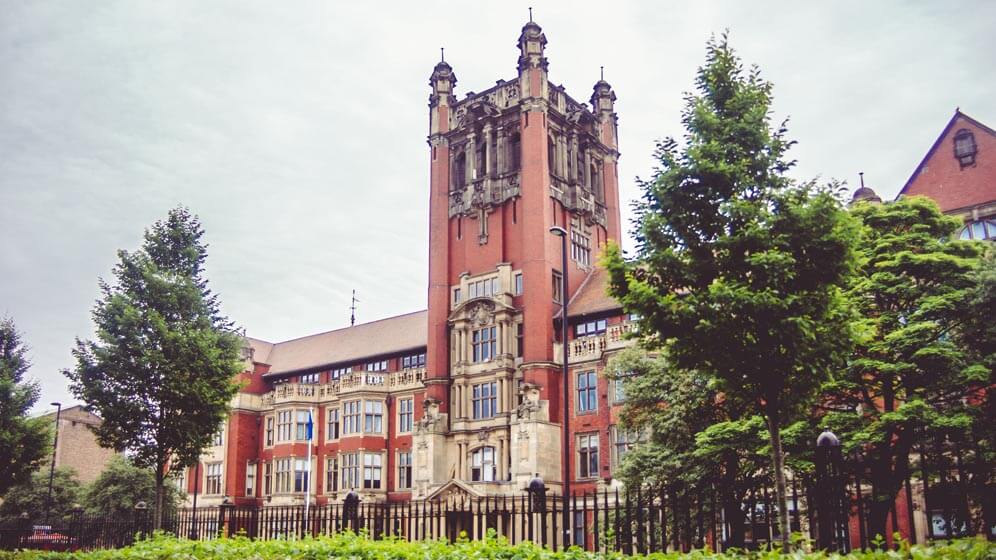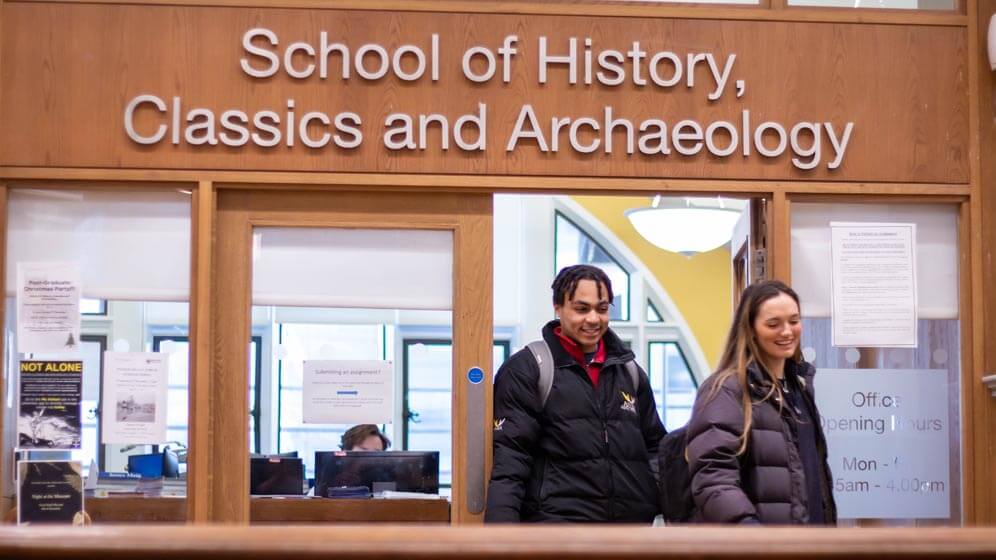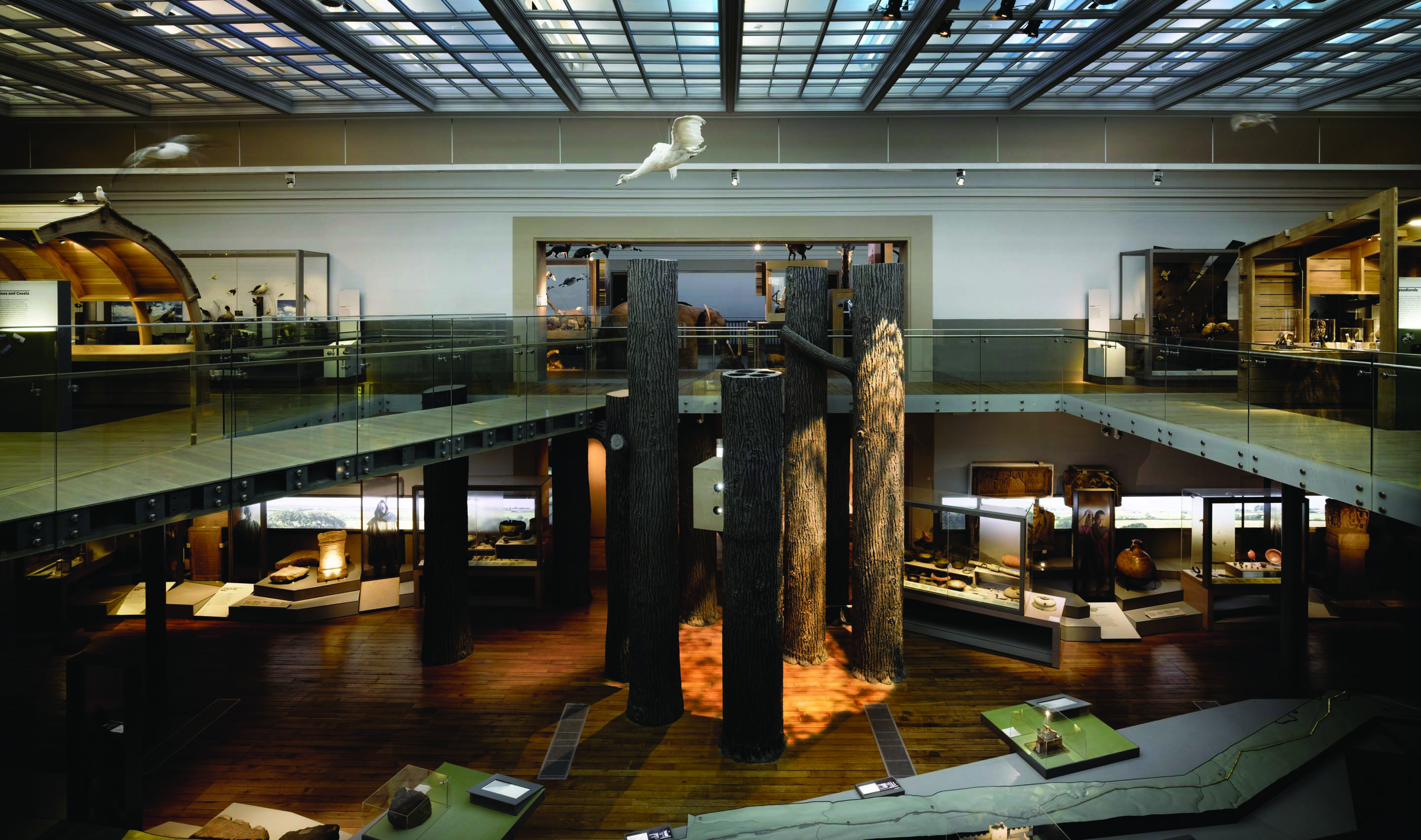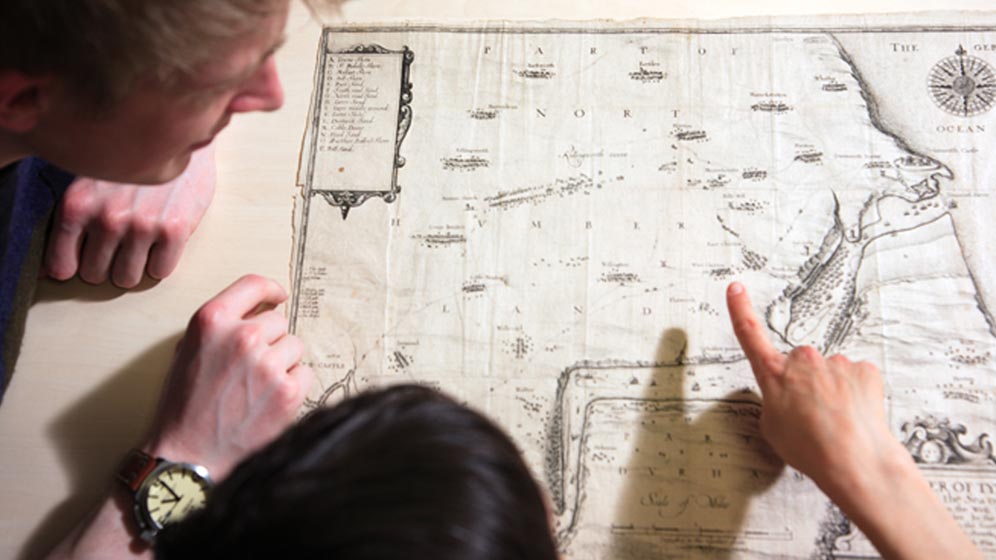Ancient History BA Honours
- UCAS code: V110
- Full time
- 3 years
Immerse yourself in studying the history, culture and politics of the ancient world in all its richness and diversity.
You are currently viewing course information for entry year: 2026
Next start date:
- September 2026
UCAS Institution name and code:
- NEWC / N21
Course overview
Our wide-ranging and inclusive Ancient History degree focuses upon a period extending from the eighth-century BCE ‘beginnings’ of Greek history to the fall of Alexandria in 641 CE.
During your degree, you'll explore:
- a broad range of historical questions relating to Greek and Roman history
- the interactions of Greeks and Romans with neighbouring or conquered peoples
- a time of widespread mobility, intercultural contact, and exchange
The areas covered will include:
- the Mediterranean world
- Central and Northern Europe, including Britain
- beyond (e.g., Graeco-Roman Egypt, Babylon, or the steppe regions north of the Euxine/Black Sea)
You'll focus on ideas of power, identity, religion, and culture along with the histories and experiences of historically marginalised groups.
You'll learn how to work with a wide range of evidence, including:
- historical texts
- inscriptions
- papyri
- coins
- art
- architecture
You can also choose to study ancient Greek and Latin, from Beginners or intermediate level. You'll be learning and working alongside internationally recognised experts. That will provide you with the opportunity to specialise in the topics relating to our various areas of expertise.
Our areas of expertise include:
- the history of Late Bronze Age and Early Iron Age Greece
- interactions between Greeks and non-Greek ‘barbarians’
- Alexander the Great
- Hellenistic kingship
- the Roman Republic and the High Empire
- Ptolemaic and Roman Egypt
- Late Antiquity
- relations between pagans and Christians
- ancient literacy and mathematics
- the experiences of immigrants, women, children, and enslaved people
- Greek and Roman religion
- Roman Law
Our dedicated research modules will enable you to develop and further hone a broad set of aptitudes and abilities including:
- a sense of empathy
- curiosity
- the ability to think creatively and reflexively
- working independently
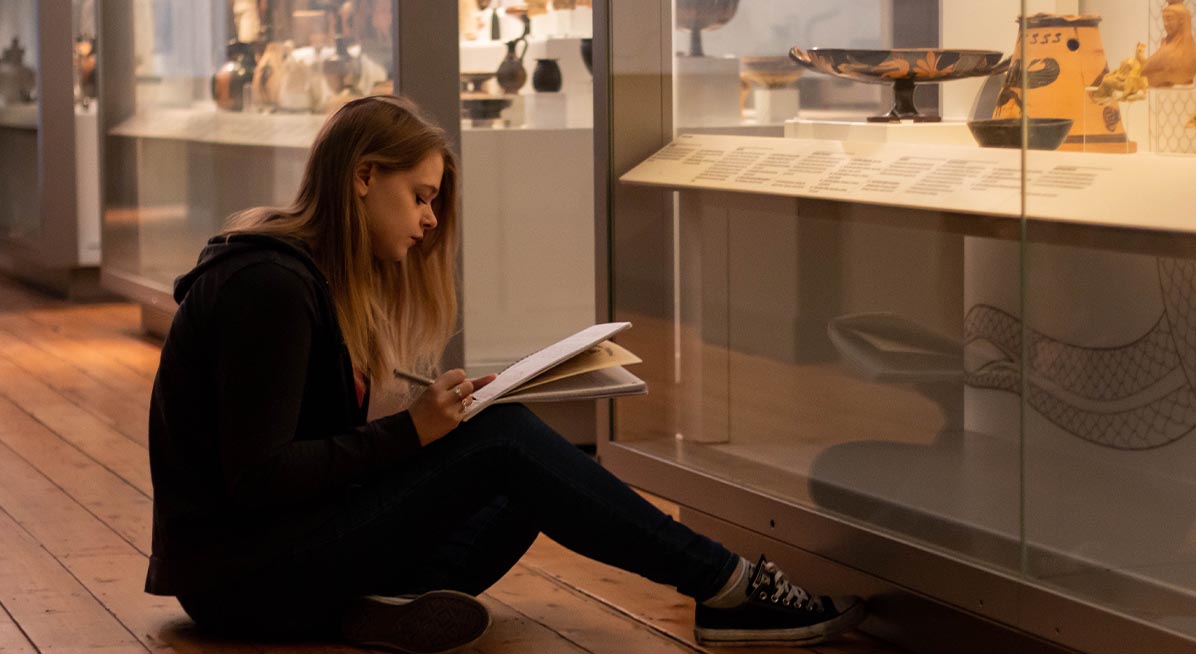
Your course and study experience - disclaimers and terms and conditions
Please rest assured we make all reasonable efforts to provide you with the programmes, services and facilities described. However, it may be necessary to make changes due to significant disruption, for example in response to Covid-19.
View our Academic experience page, which gives information about your Newcastle University study experience for the academic year 2025-26.
See our terms and conditions and student complaints information, which gives details of circumstances that may lead to changes to programmes, modules or University services.
Quality and ranking
Professional accreditation and recognition
All professional accreditations are reviewed regularly by their professional body.
Modules and learning
Modules
The information below is intended to provide an example of what you will study.
Most degrees are divided into stages. Each stage lasts for one academic year, and you'll complete modules totalling 120 credits by the end of each stage.
Our teaching is informed by research. Course content may change periodically to reflect developments in the discipline, the requirements of external bodies and partners, and student feedback.
Optional module availability
Student demand for optional modules may affect availability.
Full details of the modules on offer will be published through the Programme Regulations and Specifications ahead of each academic year. This usually happens in May.
To find out more please see our terms and conditions
Your compulsory modules will provide you with a wide-ranging and inclusive introduction to antiquity in a broad global context. You'll gain:
- broad overviews of Greek and Roman history, which will serve as a foundation for the rest of your degree
- knowledge and understanding of significant historical issues from a more global perspective. We'll focus on recurrent themes or topics across a diversity of regions and cultures
You'll then choose three optional modules. These may include ancient language (Greek or Latin), literature (in translation), philosophy, art or archaeology modules.
Modules
| Compulsory Modules | Credits |
|---|---|
| West meets East: Greek History and Society, 776-200 BC | 20 |
| The Roman World from Romulus to Trajan | 20 |
| Global Ancient Histories | 20 |
Compulsory modules will expand your knowledge of historical developments across the Greek and Roman worlds.
They will introduce you to the Hellenistic period in Greek history, after the conquests of Alexander the Great, when great kingdoms, many headed by Greek rulers, competed for power in the eastern Mediterranean and western Asia.
You will also learn about the mature Roman Empire: the many ways in which it changed over the centuries until its ultimate demise or transformation.
Optional modules will provide you with the opportunity to further your study of aspects of Greek and Roman culture and language, learn about ancient institutions like religion and slavery, or explore neighbouring periods like the Bronze Age and the Middle Ages.
A focus of this year will be developing your research and problem-solving skills through:
- critical study
- guided research
- writing of commentaries on historical texts and artefacts
Modules
| Compulsory Modules | Credits |
|---|---|
| Hellenistic Empires from Alexander to Cleopatra | 20 |
| Portfolio in Ancient History: Commentaries | 20 |
| The Roman World from Hadrian to Heraclius | 20 |
| Issues in Ancient History | 20 |
You'll also have access to a wide range of modules relating to Greek and Roman history, culture, and society. This is in addition to options in History or Archaeology.
You’ll have access to an even wider range of optional modules to select from, covering topics such as:
- mobility and identity in the Greek Mediterranean
- religion in Greece, Egypt and Mesopotamia
- Hellenistic kingship
- the fall of the Roman Republic
- the Late Roman Empire
- Rome and her enemies
- society, culture and economy of Roman Egypt
- representations of the ancient world in cinema
Modules
| Compulsory Modules | Credits |
|---|---|
| Dissertation in Classics and Ancient History | 40 |
We base these figures and graphs on the most up-to-date information available to us. They are based on the modules chosen by our students in 2024-25.
Teaching time is made up of:
- scheduled learning and teaching activities. These are timetabled activities with a member of staff present.
- structured guided learning. These are activities developed by staff to support engagement with module learning. Students or groups of students undertake these activities without direct staff participation or supervision
Teaching and assessment
Teaching methods
You'll be taught through a dynamic range of methods and activities, including:
- lectures
- seminars
- tutorials
- workshops
- practical activities
- site visits
- independent study
These activities take place in the classroom, library, field and the museum.
Assessment methods
You'll be assessed through a combination of:
-
Assignments – written or fieldwork
-
Coursework
-
Essays
-
Examinations – practical or online
-
Portfolio submission
-
Presentations
Skills and experience
Practical skills
At our on-campus museum, the Great North Museum, you'll be able to:
- access specialist collections
- handle an array of exciting artefacts from ancient Greek, Roman and Etruscan civilisations
During your degree, you'll also have the chance to take part in extracurricular field trips that take advantage of the North East's rich history, such as:
- the nearby World Heritage Site of Hadrian's Wall
- the classically-inspired Belsay Hall
- Wallington Hall
Transferable skills
Our Ancient History degree is designed to equip you with a range of transferable skills highly valued by employers, including:
- problem-solving
- creative and empathic thinking
- critical and analytical reasoning
- project management
- ability to work independently
- spoken and written communication skills
- ability to construct an argument
- time management
Research skills
Throughout your degree you will be working on a range of research projects, and will have access to the expertise and advice of members of staff. At the end of your second year you’ll have the opportunity to apply for a scholarship.
You'll spend the summer following your second year working alongside academic staff on your own research project.
In your final year, using the skills developed during your degree, you’ll write a dissertation on a topic of your own choosing. During this, you’ll hone your investigative skills as you undertake independent research with access to extensive print and electronic resources, as well as archives and special collections.
Opportunities
Study abroad
Experience life in another country by choosing to study abroad as part of your degree. You’ll be encouraged to embrace fun and challenging experiences, make connections with new communities and graduate as a globally aware professional, ready for your future.
You can choose to spend up to a year studying at a partner institution overseas.
If you choose to study abroad, it will extend your degree by a year.
Find out more about study abroad
Work placement
Get career ready with a work placement and leave as a confident professional in your field. You can apply to spend 9 to 12 months working in any organisation in the world, and receive University support from our dedicated team to secure your dream placement. Work placements take place between stages 2 and 3.
You'll gain first-hand experience of working in the sector, putting your learning into practice and developing your professional expertise.
If you choose to take a work placement, it will extend your degree by a year, and your degree title will show you have achieved the placement year. A work placement is not available if you're spending a year studying abroad. Placements are subject to availability.
Facilities and environment
Facilities
You'll be based in the School of History, Classics and Archaeology, located at the heart of campus in the historic Armstrong Building. You'll have access to excellent study resources including:
- the Philip Robinson University Library, which houses over 800,000 books and provides access to ca. 1.8m e-books
- Special Collections & Archives – a rich collection of archival material, historical medical texts and rare books
- The Great North Museum: Hancock, our on-campus museum which holds an extensive collection of Greek, Roman, and Etruscan artefacts.
-
The Wolfson Archaeology Laboratory - with facilities for use-wear analysis of bone, stone, metal and glass, and furnaces for research in material culture or experimental archaeology.
- a Material Culture Analytical Suite kitted out with microscopes, and 2D and 3D scanning equipment.
Find out more about the School of History, Classics and Archaeology
Support
You'll be welcomed into a vibrant and supportive community. We will ensure you are well placed to achieve your highest potential and are equipped for career success.
You'll have the support of an academic member of staff as a personal tutor throughout your degree to help with academic and personal issues.
Peer mentors will help you in your first year. They are fellow students who can help you settle in and answer any questions you have when starting university.
Your future
Join a network of successful graduates
You'll acquire and further develop a dynamic mix of practical, intellectual and transferable skills. These will enable you to thrive in a professional setting. You'll be able to take advantage of a wide range of career opportunities on completion of your studies.
Our Ancient History graduates have gone on to work in a diverse range of careers, including:
- law and legal services
- marketing
- financial services
- journalism
- teaching
- armed forces
- museum and heritage work
- academic research
You'll develop a mix of practical, intellectual and transferable skills desirable to employers. This will give you an excellent choice of further study and career opportunities open to you on completion of your studies.
You'll develop a mix of practical, intellectual and transferable skills desirable to employers. This will give you an excellent choice of further study and career opportunities open to you on completion of your studies.
Classics graduates find themselves in a diverse range of careers, including:
- research, information work and IT
- law and legal services
- journalism and marketing
- retail
- social work
Read more about our graduate career paths
Make a difference
Sorry, you need JavaScript to view this video
Careers support
Our Careers Service is one of the largest and best in the country, and we have strong links with employers. We provide an extensive range of opportunities to all students through our ncl+ initiative.
Visit our Careers Service website
Recognition of professional qualifications outside of the UK
If you’re studying an accredited degree and thinking about working in Europe after you graduate, the best place to find current information is the UK Government’s guidance on recognition of UK professional qualifications in EU member states. This official resource explains whether your profession is regulated in another country, what steps you need to take, and which organisation you should contact.
Entry requirements
All candidates are considered on an individual basis and we accept a broad range of qualifications.
The entrance requirements and offers below apply to 2026 entry.
| A-Level | |
|---|---|
| International Baccalaureate | |
|---|---|
Other UK and the Republic of Ireland qualifications
Alternative offers at Newcastle
Through one of our contextual or alternative offer routes, you could receive an offer of up to three grades lower than the typical requirements.
Contextual offers
We use certain contextual data from your UCAS form, alongside your application, to consider challenges that you may have faced in your education and the potential effect this may have had on your qualifications. This means you may be eligible to receive a lower contextual offer.
PARTNERS offers
One of the largest and longest support entry routes to university of its kind for students from underrepresented backgrounds. We support applicants from application through to study.
Realising Opportunities offers
A unique programme delivered in collaboration with 10 leading, research-intensive universities in the UK. The programme is open to students in Year 12/first year of college.
Pathways to Newcastle offers
Pathways to Newcastle, our national skills entry route, is available for specific subject areas.
High Performance Athletes
We support promising athletes at the application stage, who compete in regional, national or international levels in their sport.
Qualifications from outside the UK
English Language requirements
Entrance courses (INTO)
International Pathway courses are specialist programmes designed for international students who want to study in the UK. We provide a range of study options for international students in partnership with INTO.
These courses are specifically designed for international students who want to study in the UK and progress onto one of our undergraduate degrees. Our International Study Centre, has a range of study options including:
- International Foundation
- International Year One
- English Language courses
Find out more about International Pathway courses
Admissions policy
This policy applies to all undergraduate and postgraduate admissions at Newcastle University. It is intended to provide information about our admissions policies and procedures to applicants and potential applicants, to their advisors and family members, and to staff of the University.
University Admissions Policy and related policies and procedures
Credit transfer and Recognition of Prior Learning
Recognition of Prior Learning (RPL) can allow you to convert existing relevant university-level knowledge, skills and experience into credits towards a qualification. Find out more about the RPL policy which may apply to this course.
Tuition fees and scholarships
Tuition fees for academic year 2026-2027
The 2026 entry home fees have not yet been confirmed.
| Qualification: BA Honours | |
|---|---|
|
Home students full time 3 years |
Tuition fees (Year 1)
Not set |
|
International students full time 3 years |
Tuition fees (Year 1)
24,500 |
Year abroad and additional costs
For programmes where you can spend a year on a work placement or studying abroad, you will receive a significant fee reduction for that year.
Some of our degrees involve additional costs which are not covered by your tuition fees.
Scholarships
Find out more about:
Open days and events
You'll have a number of opportunities to meet us throughout the year at our on-campus and virtual open days.
You'll be able to:
- explore our beautiful campus
- find out about our vibrant city
- discover what students think about studying at Newcastle
You'll also have the opportunity to speak to academic staff and find out more about the subjects you're interested in.
Find out about how you can visit Newcastle in person and virtually.
We regularly travel overseas to meet with students interested in studying at Newcastle University. Visit our events calendar to find out when we're visiting your region.
How to apply
Apply through UCAS
To apply for undergraduate study at Newcastle University, you must use the online application system managed by the Universities and Colleges Admissions Service (UCAS). All UK schools and colleges, and a small number of EU and international establishments, are registered with UCAS. You will need:
- the UCAS name and institution codes for Newcastle University (NEWC/N21)
- the UCAS code for the course you want to apply for
- the UCAS 'buzzword' for your school or college
If you are applying independently, or are applying from a school or college which is not registered to manage applications, you will still use the Apply system. You will not need a buzzword.
Apply through UCASApply through an agent
International students often apply to us through an agent. Have a look at our recommended agents and get in touch with them.
Get in touch
By phone
Call us on +44 (0) 191 208 3333 and press option 1. Our opening hours are Monday to Friday 10am until 4pm.
Live chat
Our NCL chatbot might be able to give you an answer straight away. If not, it’ll direct you to someone who can help.
You'll find our NCL chatbot in the bottom right of this page.
Online
Keep updated
We regularly send email updates and extra information about the University.
Receive regular updates by email





